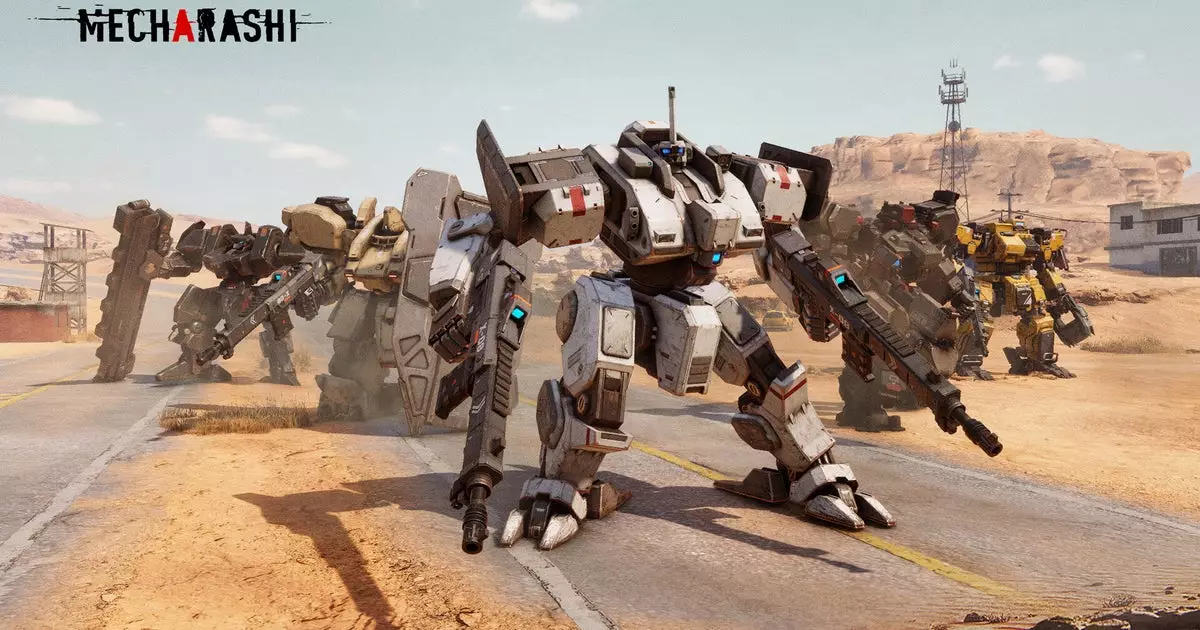For fans of tactical mech warfare games, the cancellation of the highly-anticipated Front Mission 2089: Borderscape in 2022 by Square Enix was disheartening news. A product of BlackJack Studio, this game was set to reignite the franchise’s rich history on mobile platforms like iOS and Android. Its abrupt end after just a few months since the announcement has left many wondering about the potential that was lost and what it means for the future of the Front Mission series.
The allure of mech games lies in their ability to combine intricate strategy with immersive storytelling. Front Mission has long embodied this charm, with fans eagerly awaiting its revival. However, Square Enix’s decision to cut Borderscape feels like not just a missed opportunity but a serious blow to a beloved franchise. The company’s shift in focus raises concerns about their commitment to nurturing older titles, especially in an era where nostalgia plays a critical role in the gaming industry.
The Controversy Over Mecharashi
Adding salt to the wound, the release of BlackJack Studio’s new title, Metal Storm, or Mecharashi, sparked a legal battle with Square Enix. Allegations claim that BlackJack utilized intellectual property from the canceled Front Mission project to develop Mecharashi. This game, featuring an aesthetic and mechanics reminiscent of the Front Mission series, reached players in Japan and China with plans for a larger global presence through platforms like Steam.
What stands out here is not just the accusations from Square Enix but the public curiosity surrounding Mecharashi. Does it represent an evolutionary leap in the tactical gameplay methodologies that fans have come to love? The visuals, criticized by Square Enix for their similarity to the canceled project, could echo the classic mech designs while offering something fresh and different, a blend from yesteryears and today’s technology.
The Legal Landscape
As the saga unfolds in both the US and Japanese courts, the implications stretch far beyond the immediate conflict. The lawsuit’s complex nature, featuring an extensive comparison of Mecharashi and Borderscape, places legal frameworks surrounding intellectual property at the forefront of the discussion. Square Enix’s aims to protect its footing while also raising questions about how far companies can go to assert their claims over creative content.
One cannot overlook the chilling effect that such a lawsuit might have on innovation within the gaming industry. If studios constantly fear litigation over creative similarities, the risk is a decline in the exploration of innovative designs and mechanics. After all, it is the blending and evolution of ideas that often lead to remarkable advancements in gaming.
The Community’s Role in Shaping the Future
While legal debates rage, the gaming community’s reaction to Mecharashi will play an integral role in determining its success. Fans have a penchant for supporting titles that embody the spirit of beloved franchises even when those titles are born from contentious circumstances. If Mecharashi can strike a chord with players who yearn for tactical mech warfare, it might pave the way to a future where innovation is celebrated rather than stifled.
There’s an undeniable excitement surrounding tactical mech games, and as the dust settles from the current legal fracas, one can only hope that the future holds more engaging entries in this genre. Ultimately, the evolution of mech warfare games might not be curtailed by legalities; instead, it could emerge stronger, driven by a community eager to embrace new narratives and gameplay experiences.

